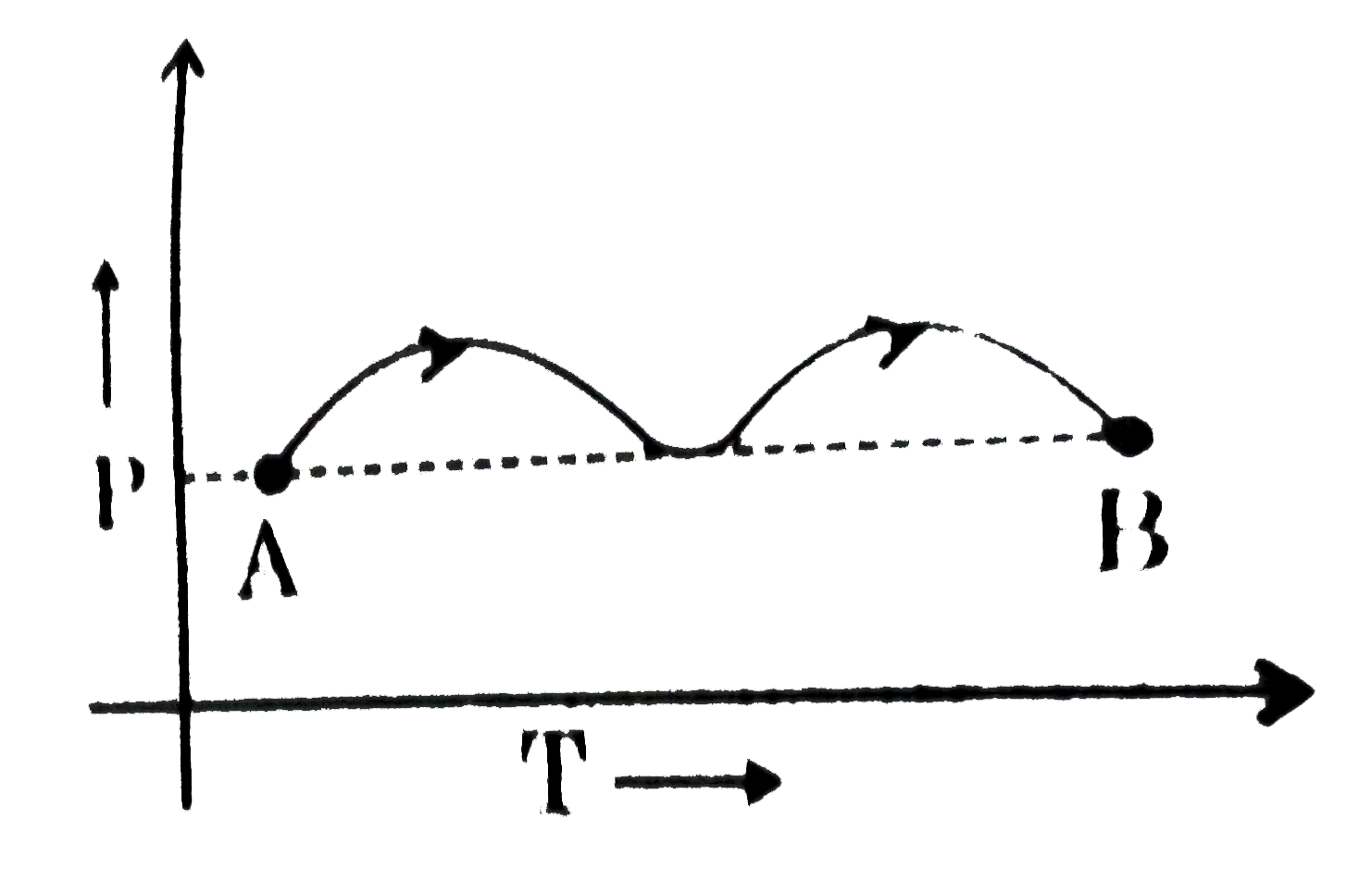For an ideal gas, which of the following is true
A
(∂E∂V)T>0
B
(∂P∂V)T=0
C
(∂E∂V)T=0
D
(∂(PV)∂V)T>0
Video Solution
Text Solution
The correct Answer is:C
There is no change in internal energy with change in volume at constant temperature for an ideal gas. As there is no force of attraction operating in between the molecules, there is no work during change in volume and hence no change in internal energy.
|
Similar Questions
Knowledge Check
The P-T graph, as given below, was observed for a process on an ideal gas. Which of the statement is true ?
 Aw=+ve,ΔH=+veBw=−ve,ΔH=−veCw=−ve,ΔH=+veDw=+ve,ΔH=−ve
Aw=+ve,ΔH=+veBw=−ve,ΔH=−veCw=−ve,ΔH=+veDw=+ve,ΔH=−veFor a given mass of an ideal gas, which of the following statements is CORRECT ?
AAt a constant temperature, the pressure is directly proportional to the density of al gas.BAt a constant temperature, the pressure is directly proportional to the volume on a gasCAt a constant pressure, the volume is inversely proportional to the temperature of a gas.DAt a constant volume, pressure is inversely proportional to the temperature of a gas.In case of molecules of an ideal gas, which of the following , average velocities cannot be zero?
A<¯¯¯Vl>B<¯¯¯V3>C<¯¯¯V4>D<¯¯¯V5>
For free expansion of the gas, which of the following is true?
View SolutionFor free expansion of the gas which of the following is true
View SolutionFor 1 mole of ideal gas which of the following statements must be true
a) U & H depend only on temperature
b) Compressibility factor (Z) can not be 1.
c) Cp−Cv =R
d) △U=CvdT for all processes
View SolutionFor an ideal solution of two components A and B, which of the following is true?
View SolutionFor an ideal solution of two components A and B, which of the following is true?
View Solution